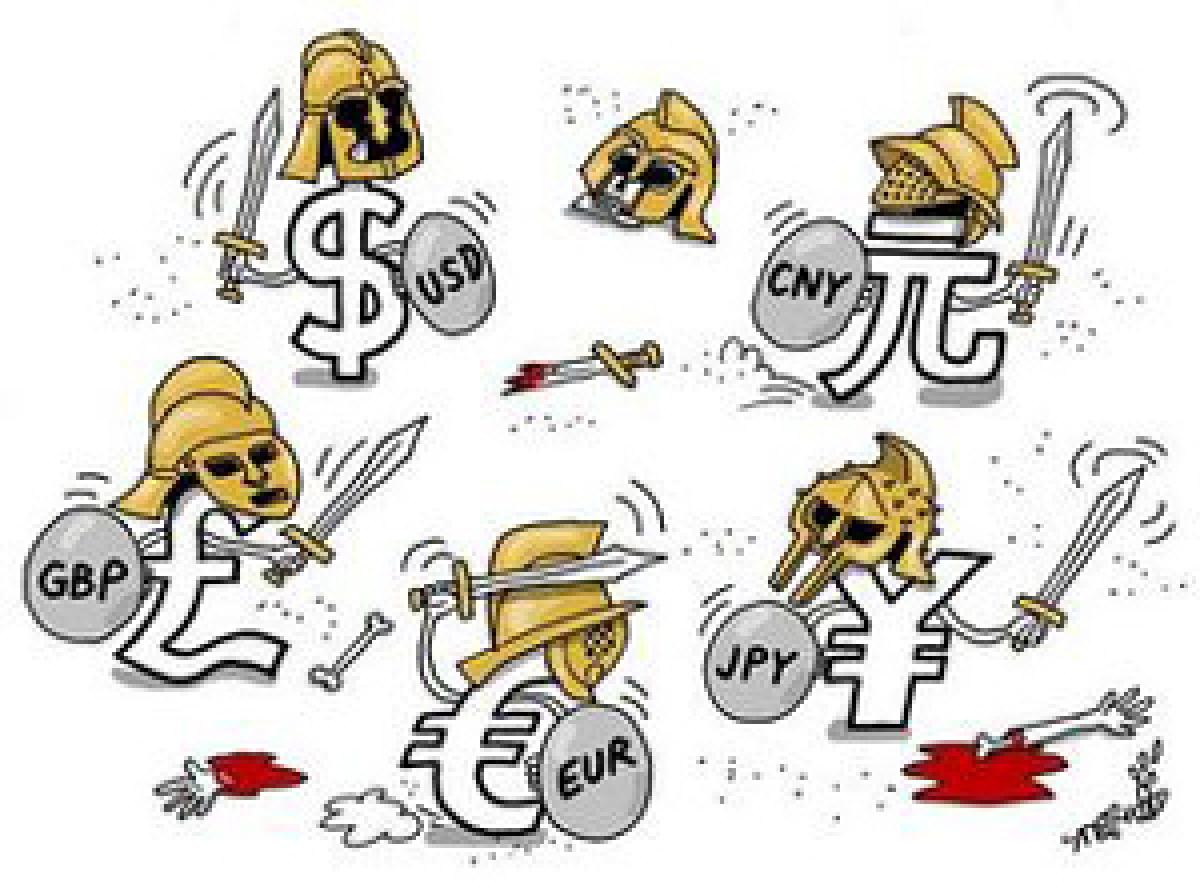Yuan devaluation may stoke currency war

Yuan devaluation may stoke currency war . China\'s shock 2 per cent devaluation of the Chinese yuan renminbi (CNY) on Tuesday pushed the dollar higher and raised the prospect of a new round of currency wars, just as Greece reached a new deal to contain its debt crisis.
 China's shock 2 per cent devaluation of the Chinese yuan renminbi (CNY) on Tuesday pushed the dollar higher and raised the prospect of a new round of currency wars, just as Greece reached a new deal to contain its debt crisis. Stocks fell in Asia and Europe as investors worried about the implications of a move designed to support China's slowing economy and exports.
China's shock 2 per cent devaluation of the Chinese yuan renminbi (CNY) on Tuesday pushed the dollar higher and raised the prospect of a new round of currency wars, just as Greece reached a new deal to contain its debt crisis. Stocks fell in Asia and Europe as investors worried about the implications of a move designed to support China's slowing economy and exports.
The stronger dollar hit commodity prices, driving crude oil down after Monday's hefty gains. Weaker stocks lifted top-rated bonds, with yields on euro zone debt also falling on the Greek deal, struck nine days before Athens is due to repay 3.2 billion euros to the European Central Bank. Global policymakers, including those at some of Asia's most intervention-minded central banks, are holding the line on their currency policies after China's surprise devaluation of the yuan.
China's central bank said Tuesday's 1.9 percent devaluation was a one-off move. It also switched to a more market-determined benchmark for the currency's daily trading band. A weaker yuan makes Chinese exports cheaper and competing exports more expensive. Countries that see themselves at a competitive disadvantage might be tempted to devalue their own currencies in retaliation.
But so far policymakers from South Korea, India, Indonesia andJapan see no reason for tit-for-tat trade-war policies. "I don't think the move would trigger a global currency war," a Japanese policymaker said. China's move, which the central bank described as a "one-off depreciation" based on a new way of managing the exchange rate that better reflected market forces, triggered the yuan's biggest fall since 1994, pushing it to its lowest level against the dollar in almost three years.
The Australian dollar, often used as a liquid proxy for the yuan, fell 1.1 per cent to $0.7324 as the US dollar rose 0.4 per cent against a basket of currencies before paring gains. In Asia, the Singapore dollar hit a five-year low while the Malaysian ringgit and the Indonesian rupiah hit lows not seen since the Asian financial crisis 17 years ago. The Japanese yen hit a two-month low of 125.08 to the U.S. dollar.
The euro, buoyed by the Greece deal, rose 0.1 per cent to $1.1022. US reaction will be crucial. Washington has for years pressed Beijing to free up the exchange rate to allow the yuan to strengthen, reflecting the growth in the world's second-largest economy. Today, China's economy is slowing and the new exchange rate mechanism gives markets greater ability to push the yuan lower, just as the United States prepares to raise interest rates - a step that should add to dollar strength.
"It does look, however modest, like an attempt to recoup just a small amount of competitive edge lost in international markets," said Simon Derrick, head of currency research at BNY Mellon in London. "What happens over the next few days matters. If we have a currency that moves much more freely, fine. If, however, we go back and it's just repegged ... that is currency war."
The Indian rupee is one of the few emerging currencies with smaller losses than the yuan in 2015, thanks to foreign investment flows attracted to India's strong economy. "It is like jogging - everyone has to keep pace so that at the end on a relative basis you don't lose," a senior Indian policymaker told Reuters. "We have to carefully balance the rupee so that the country doesn't lose ground on the external side and neither do we import lot of inflation.
Oil prices fell as dollar-priced commodities became more expensive, weighing on demand. Brent crude was down 59 cents a barrel at $49.79. Gold fell as low as $1,093.25 before recovering to around $1,1109 an ounce as investors sought safety. "Probably gold is benefiting from fears that this is a new round of 'currency war'," Macquarie analyst Matthew Turner said, adding that the move had increased uncertainties about the global economy, which tends to be good for gold.
By Nigel Stephenson








